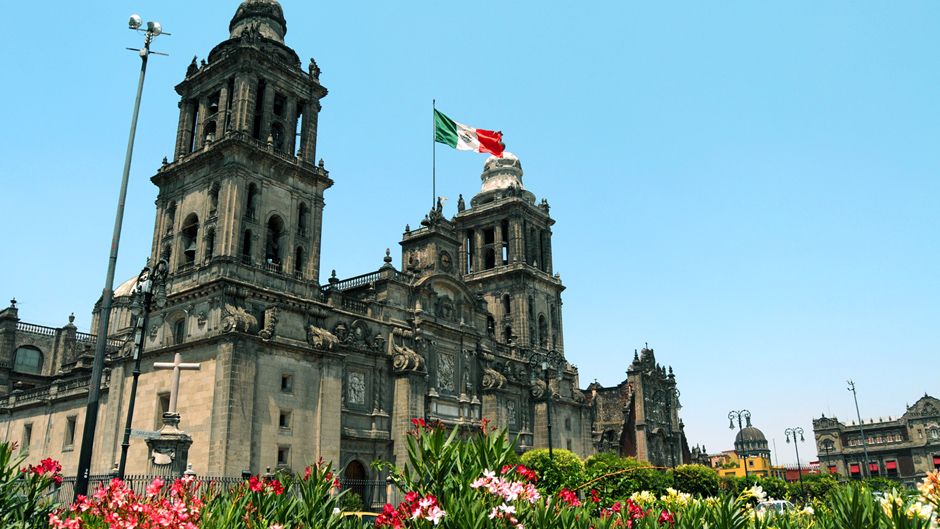For the first time since 1988, when the leftwing of Mexico’s long-ruling Institutional Revolutionary Party (PRI) peeled away to run its own candidate and then lost in a famously tainted election, a leader from the traditional Mexican left, albeit from a new party, is poised to win the presidency.
Andrés Manuel López Obrador, known by his initials, AMLO, is a former rural organizer for the National Indigenous Institute who became the powerful mayor of Mexico City in 2000. Unlike 1988, this time an independent federal elections institute born during the country’s two-decade political transition is running a free and pretty fair election.
Given that, repeated polls suggest López Obrador will easily beat his closest rival, Ricardo Anaya of the conservative National Action Party (PAN), succeeding the PRI’s Enrique Peña Nieto. The election is July 1.
Making his third run for the presidency, López Obrador’s popularity and probable victory can be explained by failures of previous governments coupled with a self-created outsider status that distances him from the discredited political establishment. Interestingly, López Obrador has not often criticized the current government’s attempts to manage the rocky relationship with U.S. President Donald Trump, perhaps reflecting a sense of nationalism over political rivalry.
Policy failures that are mobilizing an anti-establishment vote include public insecurity, economic inequality, stalled social mobility and rampant corruption. Mexicans have suffered epidemic levels of violence since former President Felipe Calderón of the PAN launched a “war on drugs” in 2006 that sent the military into urban settings, destabilizing drug cartels while abetting and sometimes perpetuating massive human rights abuses. Since 2006, more than 200,000 Mexicans have died violently. A conservative estimate of 70,000 people have disappeared.
Equally troubling is that among the assassinated are the very people Mexicans need to improve government performance: the 117 journalists who have been killed since 2000, and 24 others who disappeared, as well as 114 local political candidates who have been assassinated since September 2017. Impunity for these murders and crime in general is nearly complete, reflecting a justice system that has broken down.
Given weaknesses in the rule of law, it’s not surprising that, last year, Mexico ranked 135th out of 180 countries in the Transparency International Corruption Perceptions Index, which measures perceived levels of public sector corruption among experts and businesspeople. Mexicans experience corruption directly during everyday interactions with police and bureaucrats, and indirectly via news exposés of corruption en grande.
Corruption is all-the-more enraging because of pervasive poverty and precarity even among those who work many hours, extreme economic inequality and stunted intergenerational mobility. If you’re born poor, there are good odds you will stay poor no matter how hard you work. Who is responsible for this? Mexicans squarely blame politicians and political parties, who receive the worst ratings in surveys about what people and institutions Mexicans trust (family, schools and hospitals are rated among the most trustworthy).
Thus, the table has been set for a candidate who, despite his origins in the system, has successfully portrayed himself as anti-establishment through steady and long-term criticism of the “mafia in power,” and the creation three years ago of the MORENA (National Regeneration Movement) Party. MORENA evokes Mexico’s majority mestizo population and the country’s patron saint, the Virgin of Guadalupe, la virgin morena(the brown virgin). Thus, MORENA links López Obrador to two profoundly rooted and respected symbols in Mexican culture, which stand apart from the discredited sphere of corrupt and incompetent politicians.
The big concerns raised about López Obrador center on his populist us-versus-them rhetoric, impatience with criticism, and tendency to go-it-alone, all of which he has toned down in his third presidential campaign. Commercials comparing him to Venezuela’s Hugo Chavez and Nicolas Maduro may have undermined his unsuccessful 2006 and 2012 bids, but don’t seem to be moving public opinion this go-around.
Given the institutional framework Mexico created over the last two decades to check presidential power, the concerns that López Obrador could reinstate the “imperial presidency” of the PRI, which held the presidency for 71 consecutive years, seem exaggerated if not unimaginable. Checks on the president include an independent central bank, Supreme Court and federal elections bureaucracy.
State governors are also a newly autonomous political group in Mexico. Some have used their new power corruptly and even in league with organized crime; fully 11 were under indictment or investigation last year. Whether López Obrador tries to recentralize power through presidential patronage in the old style of the PRI, or restrain the governors by strengthening local accountability institutions such as state legislatures, courts and elections bureaucracies, will be an important indicator of how he wants to govern. Will he try to solve Mexico’s serious problems by aggrandizing presidential power or strengthening Mexican democracy for the long-term?
His relations with business owners and investors may be better than some think. His domestically focused development plans could benefit them by expanding the internal market and through government public works projects, as long as he can control inflation and other macro-economic indicators. In his nearly five years as mayor, López Obrador was no enemy of the private sector, and foreign investment in the city was higher than for any of the three other mayors the city has had since the post became an elected office in 1997.
More broadly, what may help López Obrador remain popular is not so much his populist rhetoric but a strong international economic environment that greases the wheels of his economic development strategy, as well as some early successes in bringing down corruption and violence.
We in Miami and the United States should hope that López Obrador is successful in tackling the problems that have made, in all likelihood, his third time the charm. We have a role to play in supporting the prosperity of Mexico as our country’s third-largest trading partner, as well as in overcoming the violence that guns and drugs bought in the U.S. help to perpetuate in Mexico.
The future of 124 million people deserves our interest and respect intrinsically, but even more so because Mexico is a nation with a millennial culture, a society that strives impressively for social justice, and a country that shares a land border with the southwest U.S. If López Obrador is successful, we can benefit and learn a lot from him.
 Sallie Hughes is author of Newsrooms in Conflict: Journalism and the Democratization of Mexico and numerous other academic works on politics and the media in Mexico. As a correspondent in Mexico in the 1990s, her work appeared in The Washington Post, MacLeans of Canada, El Financiero Internacional of Mexico, and The Miami Herald. She is an associate professor in the School of Communication and faculty director at The University of Miami Institute for Advanced Study of the Americas.
Sallie Hughes is author of Newsrooms in Conflict: Journalism and the Democratization of Mexico and numerous other academic works on politics and the media in Mexico. As a correspondent in Mexico in the 1990s, her work appeared in The Washington Post, MacLeans of Canada, El Financiero Internacional of Mexico, and The Miami Herald. She is an associate professor in the School of Communication and faculty director at The University of Miami Institute for Advanced Study of the Americas.

